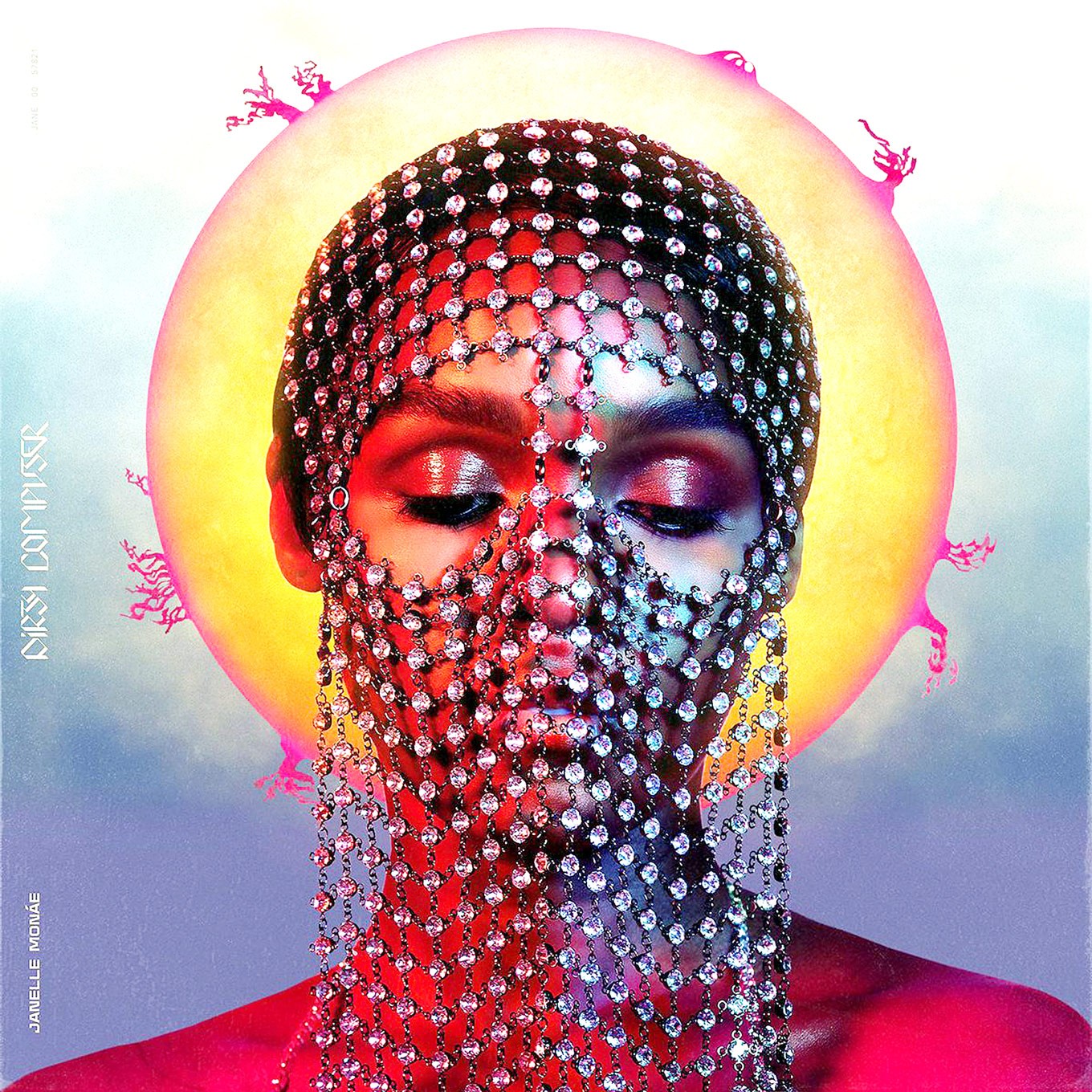Album Review: 'Dirty Computer' by Janelle Monáe
Change text size
Gift Premium Articles
to Anyone
 ‘Dirty Computer’ by Janelle Monáe (Bad Boy Records/File)
‘Dirty Computer’ by Janelle Monáe (Bad Boy Records/File)
S
inger, songwriter and actress Janelle Monáe wears a lot of masks, but none of them were as reliable as the moniker she assumes as the android Cindi Mayweather.
Mayweather made cinematic records, two LPs and an EP — Metropolis: Suite I (The Chase), The ArchAndroid, and The Electric Lady. Through stories of her imprisonment, release or romance, we are not only left to root for Cindi or her maker but to also imagine her stories playing in our heads — like a film.
Monáe’s obsession in concept is a reliable excitement. So when word got out that Dirty Computer, her third LP, would feature Cindy’s unmasking, revealing a woman by the name of Janelle Monáe, I worried that the album would disrobe itself of its inclination for concept.
I thought there would be none of those suites (spread across her first three releases), or those delightful segues. Maybe her generous ear for a wide array of genres (from the dance-pop of “Dance Apocalyptic”, the psychedelia of “Faster” to the folk of “Oh, Maker”) would be left behind in favor of something more uniform, more pandering.
I was wrong. Dead wrong. Dirty Computer is a terrific, pleasing record. Monáe has always been partial to making her albums a listening experience — the segues are purposeful and the songs that they connect are rarely throwaways. This time, the sonic language she uses is one of exuberance, one that telegraphs liberation.
Liberation for queer people (she came out as pansexual in a Rolling Stoneprofile, after years of dodging that question with a variation of her famous “I only date androids” quote). Liberation for women, for sexual expression. The message of liberation is as vital as the symphony that conveys it.
That symphony is one way for songwriters to expand the limits of pop music. Dirty Computer is an unmistakably pop album, but one that treats details as an utmost priority, instead of an abstraction. It reminds me of those early Janet Jackson records, like The Velvet Rope or Janet Jackson’s Rhythm Nation 1814 — the latter also inspired by real tales of injustice.
Take the breezy first track “Dirty Computer”, a song that features The Beach Boys’ Brian Wilson, perhaps the greatest author of pop symphonies in the 1960s. It’s an outlier that fortunately works, as the following songs are pop music of the carefree types.
From the electro-pop, “screw everything” anthem “Screwed”, a duet with Zoë Kravitz, to the feminist ode to the vagina “Pynk”, a duet with Grimes, Dirty Computer is rooted in empowerment. But to root empowerment in real problems — discrimination against women, African Americans — plaguing the society that both Mayweather and Monáe live in, the result is not saccharine; it’s sincerity.
It helps that Monáe runs a label called Wondaland Records and the creative headquarter Wondaland Arts Society; she also has an organization called Fem the Future that helps women find their rightful place in entertainment industries.
Dirty Computer also benefits from sumptuous sonic details. It’s been said that the great Prince looms large in the album — he reportedly gave Monáe a synth line that’s featured in the song “Make Me Feel”. But Dirty Computer takes Prince’s spirit and runs with it.
The songs often melt into each other, like “Screwed” and the exciting hip-hop track “Django Jane”. It hits its brakes when the six-minute slow-burner “Don’t Judge Me” (“Even though you tell me you love me/I’m afraid that you just love my disguise”, she tellingly sings) comes on, and so does the bright, orchestral ballad of “So Afraid”.
Dirty Computer is one of those albums that leaves its listeners easy to remember the details in a surgical manner. To me, it’s the coda: Monáe’s rapping in “Screwed”, Monáe’s robotic voice in “I Got the Juice”, a duet with Pharrell Williams. There’s also the instruments that shine: The synths in “So Afraid”, guitar in “Make Me Feel” or spoken-word bits in the heartland anthemic closer “Americans”.
The release of Dirty Computer is accompanied by the film (or “emotion picture”, as she calls it) of the same name. It’s a story of Monáe, under the name Jane 57821, preparing to have her memories erased in a futuristic laboratory set in a draconian surveillance state. Jane 57821 is a “dirty computer”, a person who’s blemished by her violation of norms. See, science fiction or concepts will never leave her, both when they guard her and open her up. It’s one way for her to be free.









